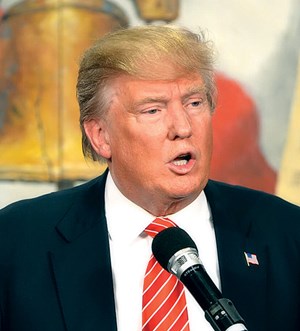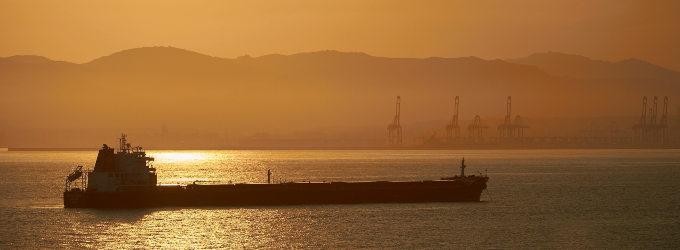(Bloomberg) — India’s Finance Minister Nirmala Sitharaman said the country will continue buying Russian oil, signaling its intent to defy U.S. President Donald Trump’s persistent demands to halt the purchases.

U.S. President Trump has imposed 50% tariffs on India in retaliation for Russian oil purchases
“Where we buy our oil from, especially a big-ticket foreign exchange item where we pay so much, highest in terms of import, we will have to take a call on what suits us best,” Sitharaman said in an interview with News18 television on Friday. “We will undoubtedly be buying.”
The comments come as New Delhi has kept up its purchases of Russian oil, saying it will continue to do so as long as it’s financially viable. India has been the largest buyer of Russian seaborne crude as the discounted barrels have helped the world’s third largest oil consumer keep its import bill in check.
The move has irked the Trump administration, which doubled tariffs on the South Asian nation to 50%, among the highest in the world. Commerce Secretary Howard Lutnick in an interview with Bloomberg TV reiterated the White House’s demand that India stop buying Russian oil.
Separately, Trump hit out at India and Russia once again on Friday for strengthening ties with China.
Prime Minister Narendra Modi and Russian President Vladimir Putin met Chinese President Xi Jinping at the Shanghai Cooperation Organisation Summit in Tianjin earlier this week. The leaders discussed cooperation in areas ranging from energy to security.
On India’s deepening relationship with China, Sitharaman said that New Delhi and Beijing must hold meaningful discussions on market access and non-tariff barriers. She said a long-term trading partnership “will take time” to develop and needs “sincere engagement” from both sides, adding that the government will be open to relaxing investment curbs on China.
Tariff impact
On White House adviser Peter Navarro’s comments that the South Asian nation has become a ‘laundromat’ for Kremlin, Sitharaman said the global diplomatic world is “astonished that such kind of expression is being used for India.” She added that “those in the diplomatic area will respond or deal with it.”
Trump’s tariffs will impact more than 55% of the goods shipped to the U.S. — India’s biggest market. Citigroup Inc. estimates that the combined 50% tariff poses a 0.6-0.8 percentage point downside risk to India’s annual GDP growth.
Sitharaman said the government is looking at measures to help businesses hit by the high levies. “We can’t leave our exporters high and dry,” she said, adding that a package to help reduce the tariff burden is in the offing.

